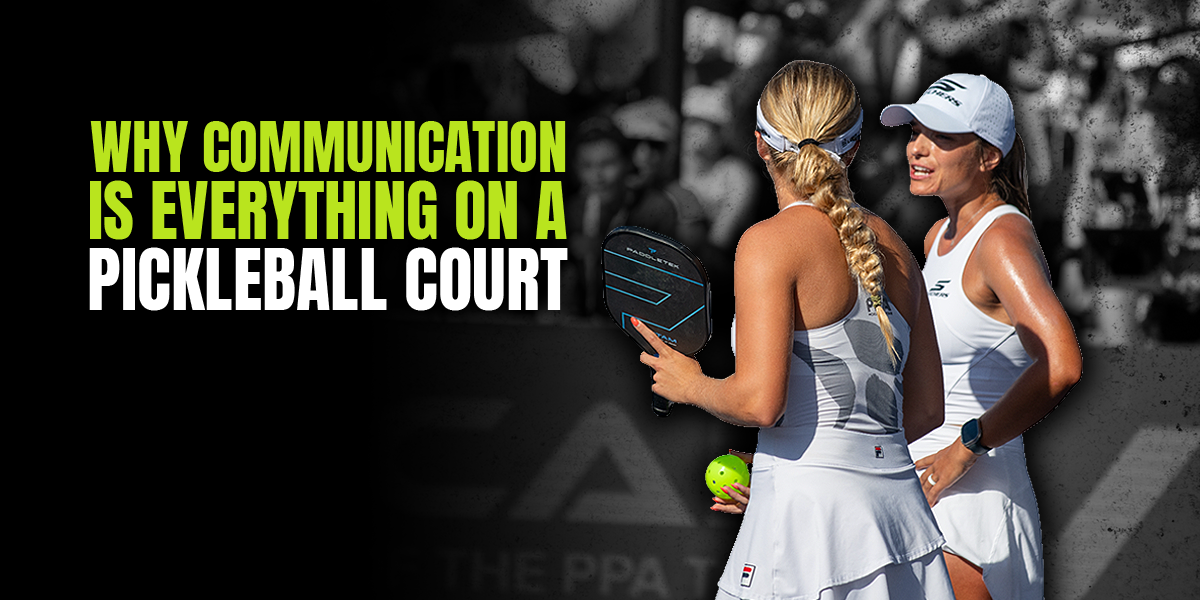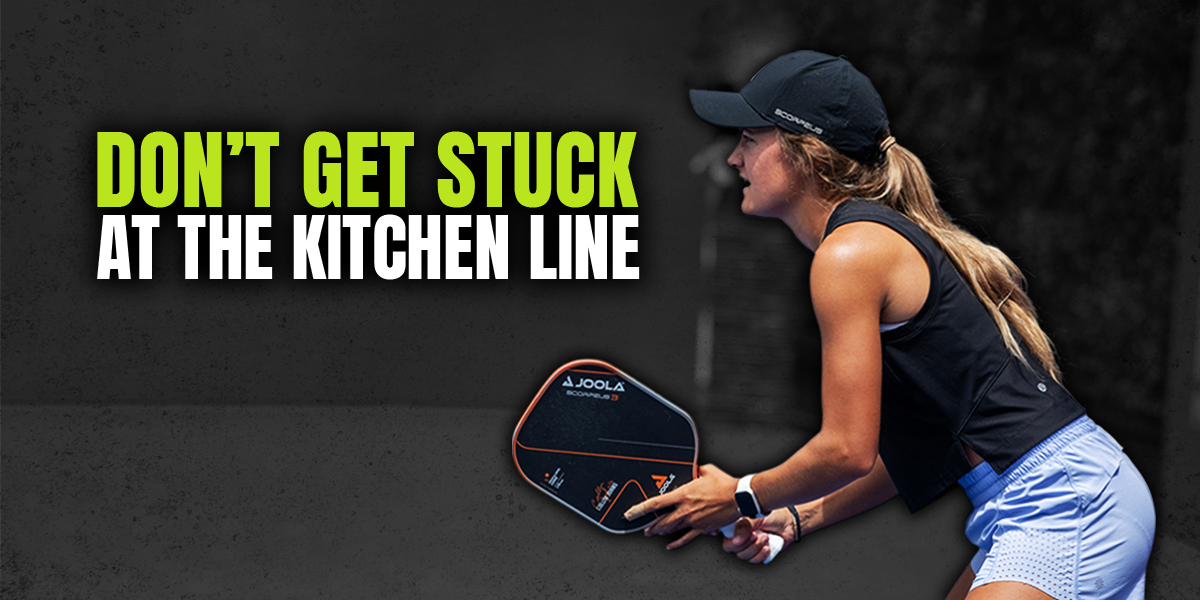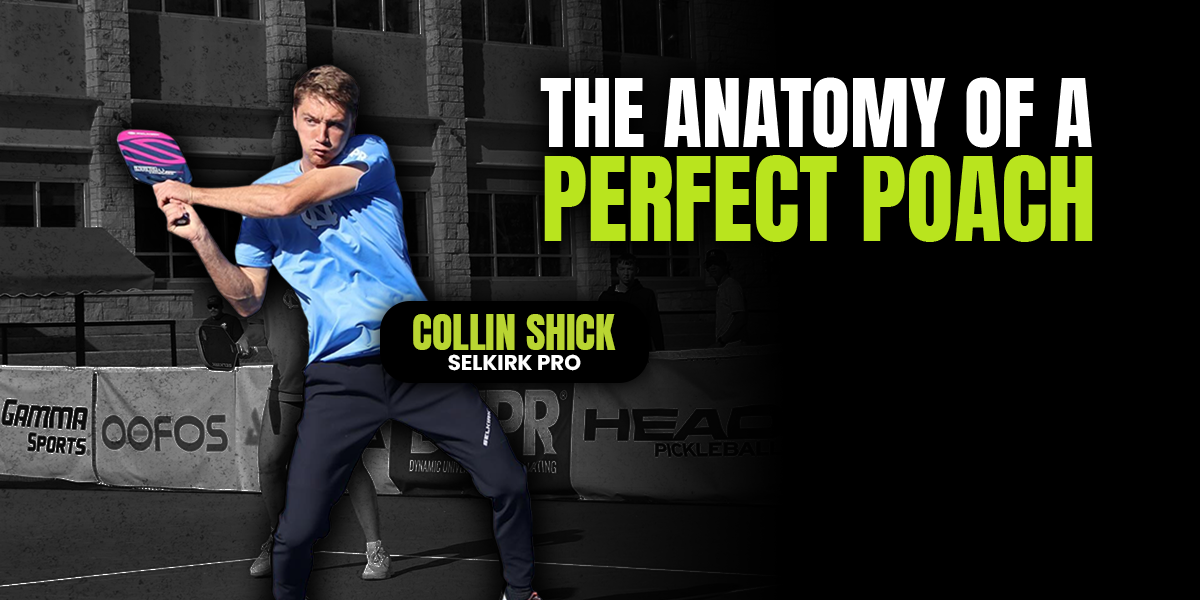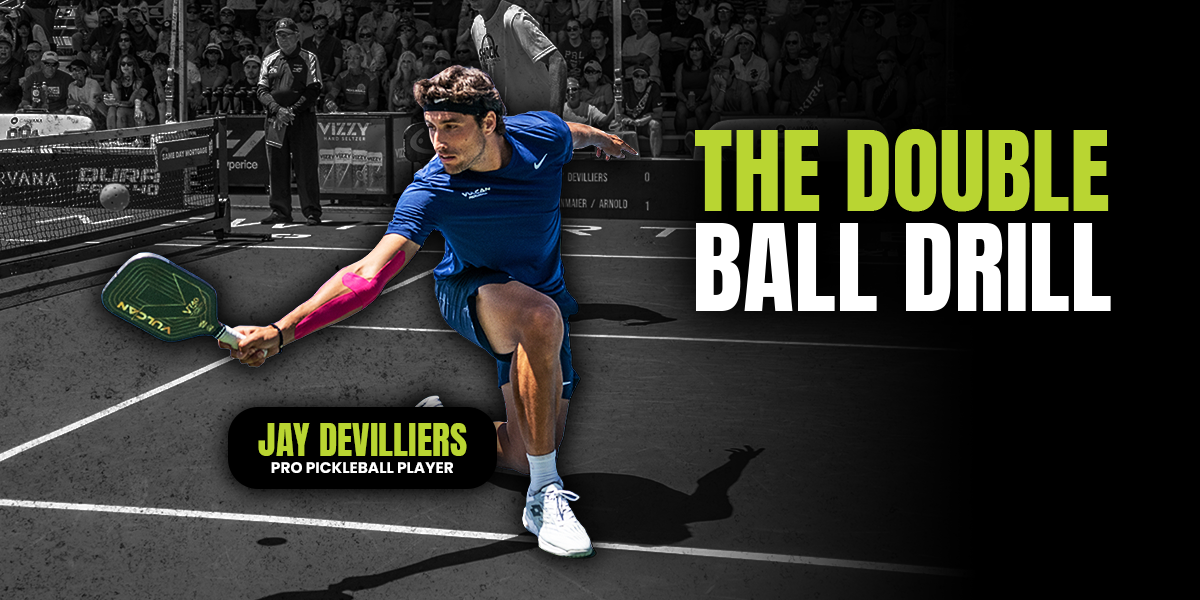
Things to Communicate With Your Partner Before the First Point is Played
On-court communication is key to building a strong partnership in doubles pickleball. To be honest, communication is the key to success in any team sport.
It helps eliminate confusion, prevents mistakes like chasing the wrong ball, and ensures you both know when to attack and when to defend.
But what you communicate before the match can be just as crucial.
We'll cover five essential things to go over with your partner before the first serve, laying the foundation for a winning strategy.
No. 1 - Analyze your opponents
If you’ve played against certain opponents before, you likely know some of their tendencies. Maybe they struggle with lobs or deep serves, or perhaps they’re a banger.
Share this information with your partner to help shape your strategy.
For example, if they only drive their thirds, you can stand firm at the kitchen line (or take a half step back) to block or counter. If they favor dropping thirds into the corner, prepare to hit an Erne and make them pay.
Don't hesitate to point out even obvious tendencies – your partner might not have noticed them.
No. 2 - Target a specific player on returns
The next question you want to ask that can make a massive difference is deciding which player you want to target on the return of serve.
This is important because that person will take the most third shots for their team.

Here are ways to decide who to target:
- Does one player miss more thirds? Target them
- Do you prefer to face drives or drops on your fourth shot? Target your preference
- Which player likes to crash the net or is better at poaching? Target them
The last one may sound counterintuitive, but you want to keep the more dangerous player back as long as you can. Someone who likes to crash should be targeted early in a point to eliminate their chances of stealing quick points.
No. 3 - Identify your strengths and weaknesses
Understanding your own strengths and weaknesses is just as important as knowing your opponent’s tendencies. Whether it's your first time playing together or you've been a tandem for years, discuss your preferred playing style.
If you're a soft-game specialist and your partner is more aggressive, use that contrast to keep opponents guessing. If you both favor a soft game, focus on dropping thirds and forcing your opponents into dinks to gain the upper hand.
No. 4 - Where to avoid hitting the ball
Assuming all players on the court are fairly equal, understanding where you should avoid hitting the ball can be just as important as knowing where you want to hit it.
Let's say one of your opponents is a former D-1 tennis player whose forehand is untouchable. That's a great spot to avoid hitting the ball.
Also, if your opponent has tremendous backhand counters, speeding a ball up to that side is a mistake.

Of course, you won't be perfect – sometimes, the action is too quick to aim. But, if you have a plan of where not to hit, you should stick to that plan as much as possible.
No. 5 - How can we generate offense?
Generating offense is key to winning in side-out scoring. Rather than reacting to the flow of the game, place your shots smartly to create opportunities.
Hitting balls down the sidelines can force opponents wide, opening up the middle for putaways. Use tactics like shake n' bakes and aggressive poaches.
If one player is more athletic, let them be the "creator" while the other focuses on support, especially with thirds.

Even if all of these questions aren't answered, simply answering one or two can give your team an advantage and help you dominate more pickleball games.
Credit to Allyce Jones and Jill Braverman. The idea of asking your partner five questions before a match was mentioned on "The Pickleball Breakdown" Podcast.
Catch the full episode here:

Love Pickleball? Join 100k+ readers for free weekly tips, news & gear deals.
Subscribe to The DinkGet 15% off pickleball gear at Midwest Racquet Sports







